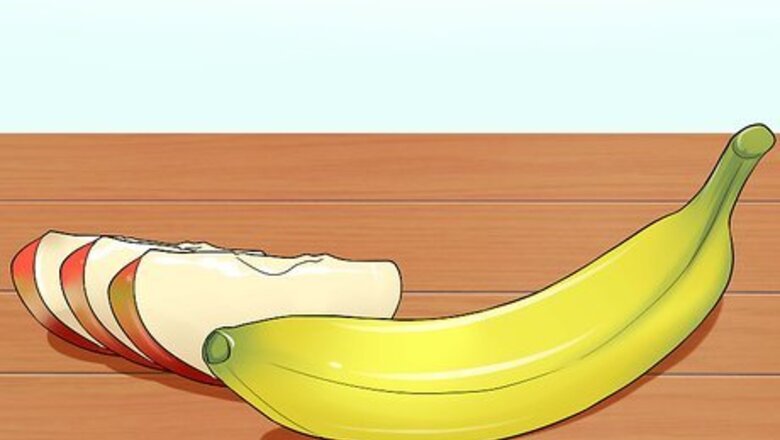
views
Adjusting Your Guinea Pig's Diet
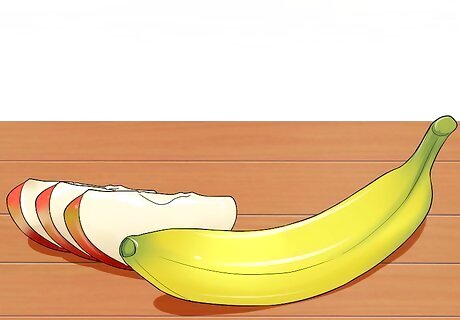
Add soft fruits and veggies to your pet's diet. These foods can help loosen the bowels. Fiber-rich fruits and vegetables will help your guinea pig’s digestive tract healthy. Add greens to your pet's diet slowly. An abundance can lead to diarrhea. Do not feed your guinea pig cabbage, cauliflower, or raw beans (excluding green beans). These can produce gas and bloating in your guinea pig.
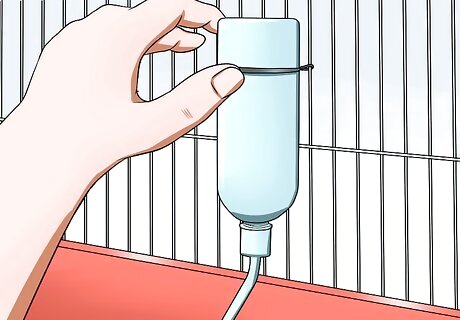
Provide a water bottle. Fresh, clean water is crucial if you want your guinea pig to have good digestive health. Change the water in the bottle daily, and test it with a few taps to ensure the water flows properly from the mouthpiece. If your guinea pig is in truly dire straits, you may need to encourage it to drink by offering it a syringe filled with water.
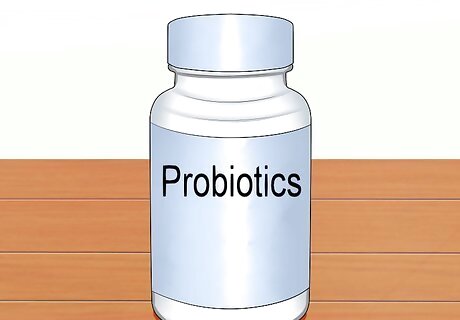
Give your guinea pig a probiotic. Probiotics contain microorganisms which restore balance to the gut bacteria. These will help jump-start your guinea pig’s digestive tract. Several options are available to you: Probiotic supplements specially designed for guinea pigs can be obtained from most pet stores. These are administered orally when mixed with water, or rectally as an enema (a fluid mixture injected into the rectum). Be aware that the bacteria in a guinea pig's gut is very different from in a human gut. Do not give a guinea pig dairy products or yogurt drinks designed for human use. Instead, speak to your veterinarian about a probiotic that is suitable for herbivores. Mix half of a fresh dropping from a healthy guinea pig with a small amount of water. Known colloquially as “poop soup,” this mixture functions as an effective probiotic. Use it to soften food pellets or administer it orally via syringe. Don't worry if this seems strange. Guinea pigs consume cecal pellets, the greenish droppings which contain important nutritional compounds, as part of their normal behavior.
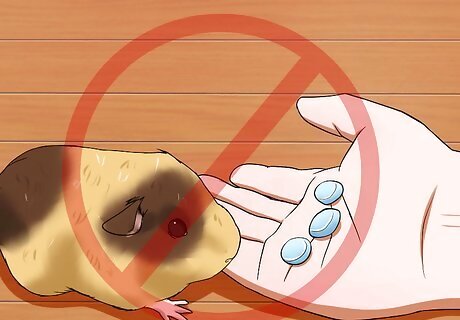
Avoid forcing your guinea pig to eat. If your guinea pig is constipated, it will not have much of an appetite. Insisting that it eats, or hand-feeding it, could further complicate its situation. If you suspect your guinea pig is constipated because he is not passing pellets regularly, then your guinea pig may not be eating well. If your guinea pig is not eating well, then take him to see a vet immediately. Not eating can indicate that there is a serious problem.
Taking Matters Into Your Own Hands (Digital Evacuation)
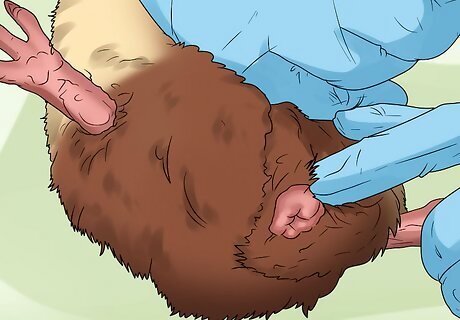
Check for anal blockage. The fecal mass is brown and located in the guinea pig's anus. If present, it will be quite visibly lodged halfway out of the anus, stretching it open. Depending on the severity, the anus may be enlarged and protruding from the guinea pig’s hindquarters. If you see a fecal mass blocking the anus and don‘t mind getting hands-on, you can take direct action to solve the guinea pig’s constipation.
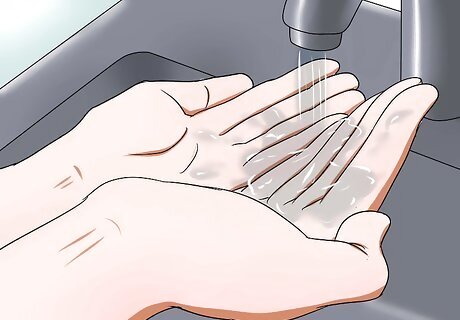
Wash your hands. Scrub thoroughly with an antibacterial soap. This will reduce the chances of any infectious germs being transmitted to your guinea pig.
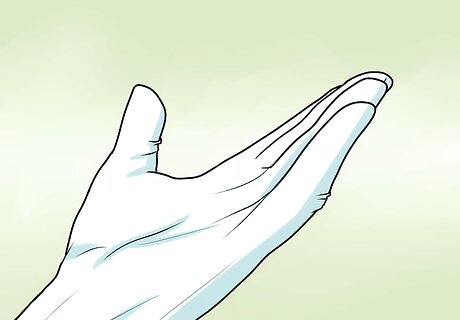
Put gloves on. Digital evacuation of feces is a messy business. Vinyl gloves will keep your hands clean and stink-free.
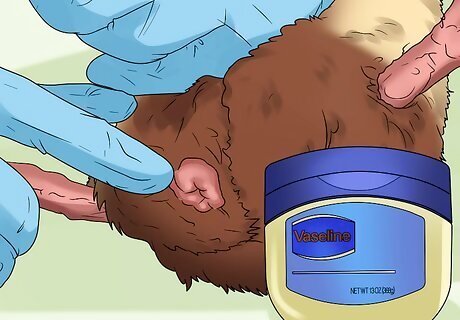
Apply lubricant to your guinea pig's anal area. Smear petroleum jelly, mineral oil, or Vaseline around the outer anal wall to ease the passage of the fecal mass. You can also try immersing the guinea pig’s hindquarters in water for a minute to soften the stool. Placing a towel beneath the guinea pig will give it a soft surface to lay or stand on, and make cleanup easier for you.
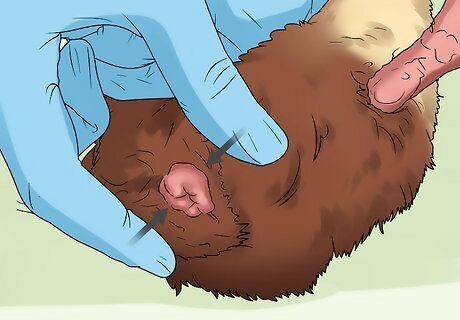
Gently squeeze the blockage out. Place your thumb and pointer finger on either side of the fecal mass at the base of the anus. Apply pressure, increasing slowly. Carefully move the mass out of the guinea pig’s body. This process is known as digital evacuation. Enlist the aid of a partner to hold the guinea pig while you remove the blockage if you find it too difficult to do alone. Be cognizant of your guinea pig’s needs. If he or she is squealing or indicating pain, you might be squeezing too hard. Do not employ any sharp instruments in an attempt to scoop the anal blockage out. The possibility of accidentally harming your guinea pig is not worth it. If you feel uncomfortable performing a digital evacuation, take your guinea pig to the vet and have him or her perform the procedure.
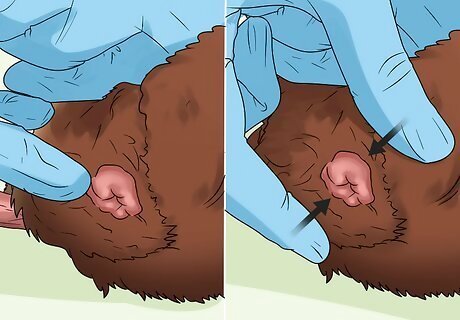
Repeat the process as needed. In the case of impaction, you may need to repeat the process for several days until the guinea pig's muscles recover enough to resume normal bowel movements. As guinea pigs age, impaction often becomes a chronic issue. This is because the rectal muscles which govern the pig’s ability to pass excrement grow weak. An older guinea pig will require digital evacuation regularly.
Consulting A Veterinarian
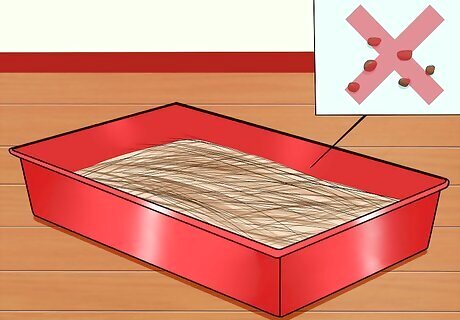
Look for signs your pet may be constipated. You should take your guinea pig to see a veterinarian if you notice any signs of constipation because constipation is rare in guinea pigs. Signs of constipation include: A distended stomach Lack of droppings in pet's cage Lethargy Straining during a bowel movement
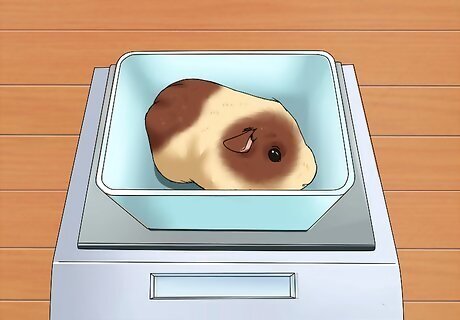
Monitor the situation carefully. Make a note of exactly how long your pet has been constipated. Weigh him or her regularly, and be attentive to changes in weight. Note when your pet last pooped, how much it is eating, and how much it drinks. You will need all this information when you take your pet to the vet.
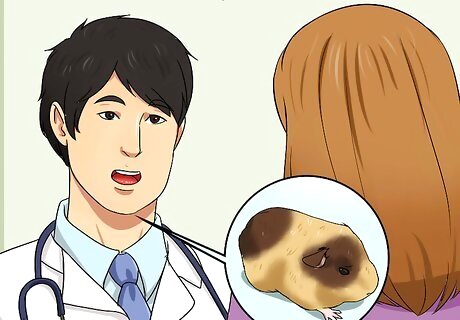
Consult a veterinarian. If you don't have a veterinarian already, find one that has experience with guinea pigs. Your best bet is to consult an AEMV (Association of Exotic Mammal Veterinarians) member. You can find an AEMV member by visiting aemv.org/index.php/members/vet-locator. If your local vet doesn't treat guinea pigs, ask for a referral to a vet that does.
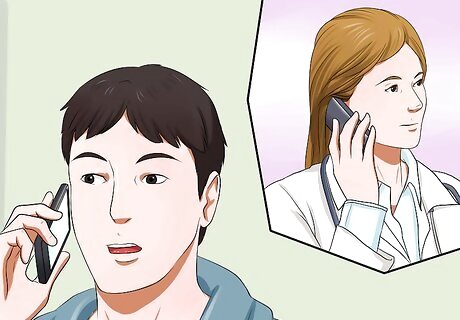
Follow your vet's instructions carefully. If you have any questions, give him or her a call. Don't be afraid to ask your vet about specific instructions, and let them know any details (such as prior bouts of constipation or illness) that might affect their diagnosis.
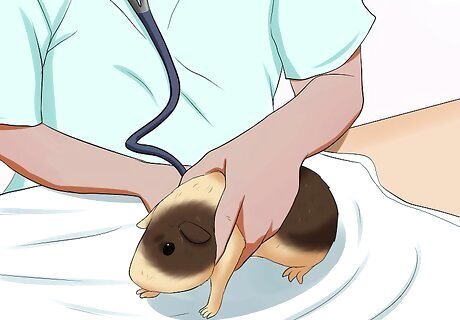
Schedule a follow-up visit. Even if your guinea pig seems to recover after receiving medical attention, it's always a good idea to ensure that whatever caused constipation won't return.




















Comments
0 comment